
Drone Service in the Real Estate Marketing Process. In recent years, drone technology has revolutionized the real estate marketing process. By providing unique and dynamic perspectives, drones have become a vital tool for real estate professionals aiming to enhance property listings and attract potential buyers. This article examines the various roles and benefits of drones in modern real estate marketing, outlines the criteria for selecting a suitable drone, and highlights the regulations and safety measures that should be considered. Additionally, we will look at successful case studies and future trends in drone technology within the real estate sector.
Key Takeaways
- Drones offer unique aerial views that enhance property listings and attract potential buyers.
- Utilizing drones for virtual tours and walkthroughs provides an immersive experience for clients.
- Drones are a cost-effective solution for real estate marketing, saving time and money.
- Choosing a suitable drone involves considering top models, essential features, and budget constraints.
- Understanding legal requirements and safety protocols is crucial for successful drone operations in real estate.
The Role of Drones in Modern Real Estate Marketing
Drones have become integral to the Drone Service in the Real Estate Marketing Process. They offer a unique perspective that traditional photography cannot match. By providing aerial views, drones revolutionize how properties are showcased, making listings more attractive and engaging for potential buyers.
Enhancing Property Listings with Aerial Views
Aerial views captured by drones can highlight the property’s surroundings, including nearby amenities, landscape features, and the overall layout of the neighborhood. This comprehensive view helps potential buyers get a better sense of the property’s location and its advantages.
Creating Virtual Tours and Walkthroughs
Drones can create immersive virtual tours and walkthroughs, enabling potential buyers to explore the property from the comfort of their own homes. This technology benefits out-of-town buyers or those unable to attend in-person viewings.
Cost-Effective Marketing Solutions
Utilizing drones for real estate marketing is more cost-effective than traditional methods. Drones can quickly capture high-quality images and videos, thereby reducing the need for expensive equipment and the requirement for extensive on-site visits.
Incorporating drones into your marketing strategy can significantly enhance your property’s appeal and reach a broader audience.
Key Benefits of Using Drones in Real Estate
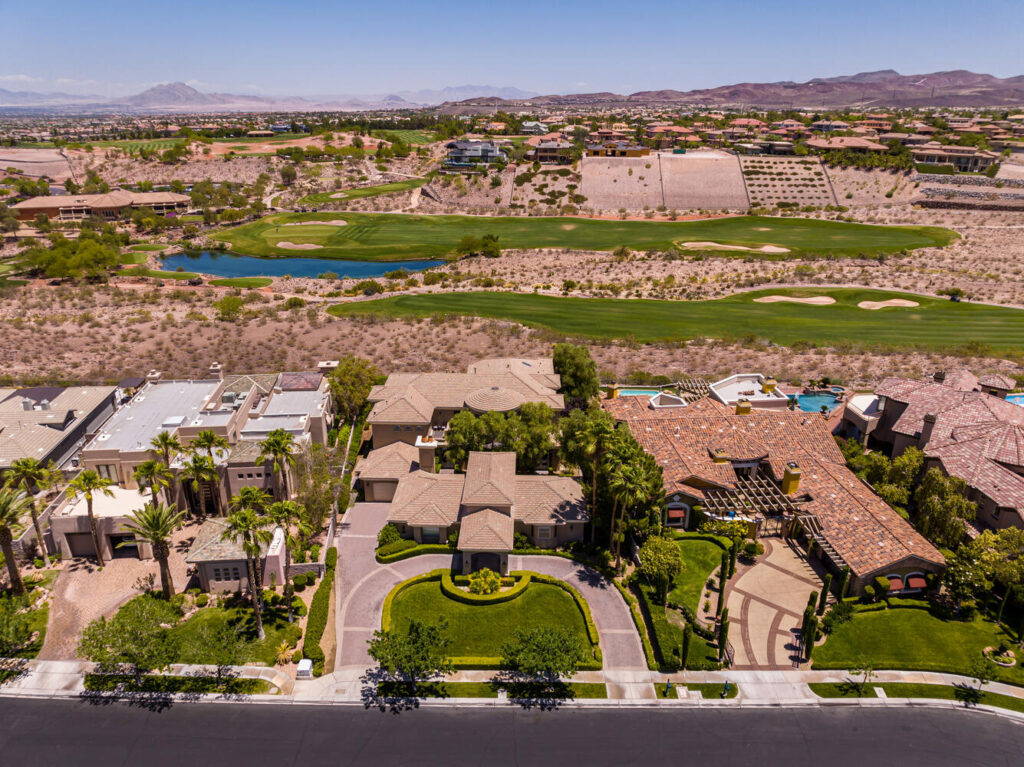
Improved Property Visualization
Drones offer a unique perspective that traditional photography cannot match. Potential buyers can gain a comprehensive understanding of the property’s layout and the surrounding area by viewing aerial views. This enhanced visualization can make listings more attractive and engaging.
Time and Cost Efficiency
One of the top 5 reasons to use drone photography for real estate is its ability to save time and resources. Drones can quickly capture high-quality images and videos, reducing the need for multiple physical inspections. This efficiency translates to cost savings for both real estate agents and clients.
Enhanced Data Collection and Analysis
Drones are not just for capturing stunning visuals; they also play a crucial role in data collection and analysis. With advanced sensors and imaging technology, drones can gather detailed information about a property. This data can be used for various studies, from assessing property conditions to planning renovations.
Utilizing drones in real estate marketing is a versatile marketing tool that improves property presentation and reduces the need for physical inspections.
Choosing the Right Drone for Real Estate Photography
Selecting the perfect drone for real estate photography can be a game-changer in showcasing properties. Several factors must be considered to ensure optimal results.
Regulations and Safety Measures for Drone Usage

Understanding and adhering to regulations and safety measures is crucial when using drones in real estate marketing. Violating these rules can result in severe consequences, including substantial fines and legal complications. Here are some key points to consider:
Understanding Legal Requirements
Many countries have established regulations governing drone usage, which are particularly relevant for real estate marketing. For instance, in the United States, the Federal Aviation Administration (FAA) mandates that drones must be registered and flown within the operator’s line of sight. The maximum flight altitude is typically limited to 400 feet, and drones should not be flown over people or moving vehicles.
Safety Protocols for Drone Operations
Safety is paramount when operating drones. Here are some essential safety protocols:
- Always conduct a pre-flight inspection to ensure the drone is working well.
- Avoid flying in adverse weather conditions such as high winds or heavy rain.
- Maintain a safe distance from people, animals, and property to prevent accidents.
- Ensure the drone pilot is not under the influence of drugs or alcohol.
Insurance and Liability Concerns
Insurance is another critical aspect of drone operations in real estate. Proper insurance coverage can protect you from potential liabilities in accidents or damages. It’s advisable to consult with an insurance provider to understand the coverage options available for drone operations.
Adhering to these regulations and safety measures not only ensures compliance but also enhances the credibility and professionalism of your real estate marketing efforts.
Case Studies: Successful Drone Implementations in Real Estate
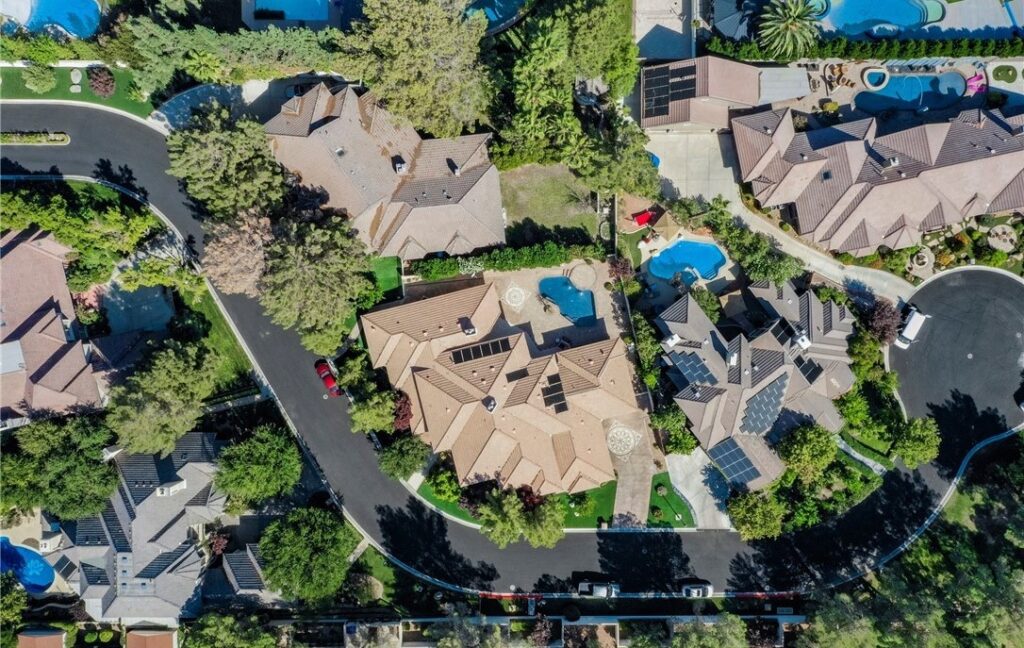
Residential Property Marketing Success
As an aerial photographer in Las Vegas offering drone aerial photography services for real estate marketing, I’ve seen firsthand how drones can elevate property listings with unique perspectives and contextual awareness. One notable case involved a luxury home, where aerial shots showcased the expansive property and its stunning surroundings, resulting in a quicker sale.
Commercial Real Estate Applications
In the commercial sector, drones have proven invaluable. For instance, a commercial real estate firm used drone footage to highlight the strategic location and accessibility of a new shopping center. This visual approach attracted more potential investors and provided a comprehensive view of the property’s potential.
Client Testimonials and Feedback
Clients consistently praise the use of drones in real estate marketing. One client mentioned that the aerial views provided a better understanding of the property’s layout and nearby amenities. Another client highlighted how the drone footage made their property stand out in a competitive market.
The integration of drone technology in real estate marketing has revolutionized the way properties are presented, making them more appealing to potential buyers and investors.
Future Trends in Drone Technology for Real Estate
As we look ahead, the future potential of drones in real estate is incredibly promising. The continuous evolution of drone technology is poised to revolutionize the industry, offering new ways to enhance property marketing and data collection.
Advancements in Drone Capabilities
The advancements in drone capabilities are remarkable. We can expect drones to become more autonomous, with improved AI and machine learning algorithms enabling them to capture more precise and dynamic visuals. This will significantly enhance the quality of aerial views and virtual tours, making property listings more attractive to potential buyers.
Integration with Other Technologies
Drones are not just standalone tools; their integration with other technologies is a game-changer. For instance, combining drones with virtual reality (VR) and augmented reality (AR) can create immersive property experiences. Additionally, drones with advanced data analytics will provide deeper insights into property conditions and market trends.
Predicted Market Growth and Opportunities
The market for drones in real estate is expected to experience substantial growth. By 2025, the drone industry’s market size is anticipated to reach $90 billion, with a significant portion attributed to real estate applications. This growth presents numerous opportunities for real estate professionals to gain a competitive edge by adopting drone technology.
The advantages of real estate drone photography are clear: dynamic visuals, high economy, precision, and a competitive edge. As technology advances, these benefits will only become more pronounced, making drones an indispensable tool in real estate marketing.
The future of drone technology in real estate is auspicious, with advancements set to revolutionize property marketing and management. From high-resolution aerial photography to 360-degree virtual tours, drones are becoming indispensable for real estate professionals. Don’t miss out on the latest trends and innovations in drone technology. Visit our website to learn more and get a free consultation today!
Conclusion
In conclusion, integrating drone technology into real estate marketing has proven to be a game-changer. From capturing stunning aerial photographs to creating immersive virtual tours, drones offer a unique and compelling way to showcase properties. The benefits are manifold, including cost savings, enhanced property presentations, and the ability to tell a property’s story in a visually engaging manner. As flight regulations become more accommodating and technology continues to advance, drones in real estate are set to become even more prevalent. Real estate professionals who embrace this technology will undoubtedly gain a competitive edge in the market, making drone services an indispensable tool in modern real estate marketing.
Frequently Asked Questions
What are the benefits of using drones in real estate marketing?
Drones offer numerous benefits in real estate marketing, including enhanced property visualization through aerial views, cost-effective marketing solutions, and the ability to create virtual tours and walkthroughs.
Are drones cost-effective for real estate marketing?
Yes, drones can be a cost-effective solution for real estate marketing. They can reduce the need for expensive traditional photography and videography, providing high-quality visuals to attract more potential buyers.
What are the legal requirements for using drones in real estate?
Legal requirements for using drones in real estate vary by location. Generally, operators must register their drones, obtain necessary certifications, and adhere to specific flight regulations. It’s important to check local laws and regulations before using drones.
What features should I look for in a drone for real estate photography?
When selecting a drone for real estate photography, consider features such as high-resolution cameras, stability control, extended battery life, and intuitive operation. Some top models offer advanced features, such as obstacle avoidance and automated flight paths.
How can drones improve property listings?
Drones can significantly enhance property listings by providing unique aerial views, creating immersive virtual tours, and showcasing the property’s surroundings. This can help attract more potential buyers and give a better impression of the property.
Are there any safety concerns with using drones in real estate?
Yes, safety concerns need to be addressed when using drones. Operators should follow safety protocols, maintain a clear line of sight with the drone, avoid flying over people, and ensure the drone is in good working condition. Additionally, having insurance can help mitigate potential liabilities.

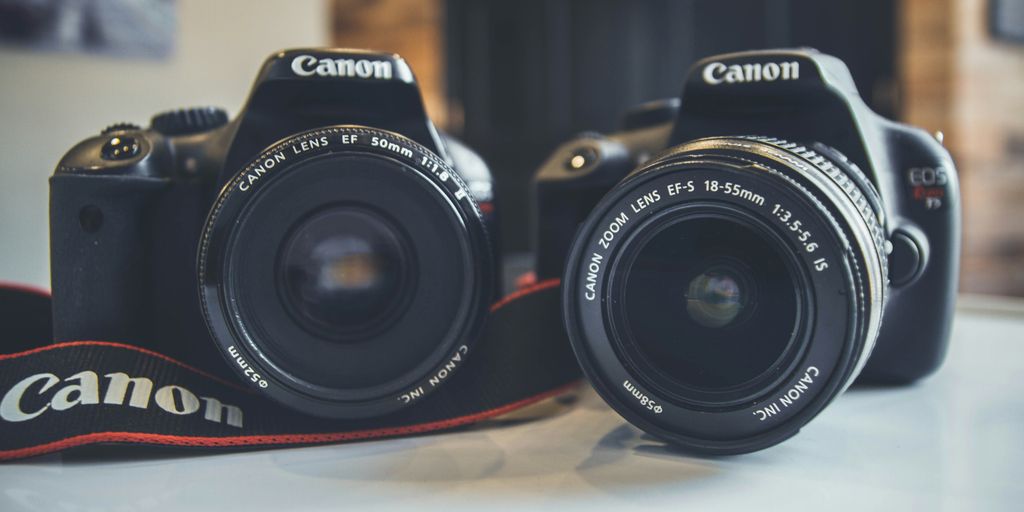
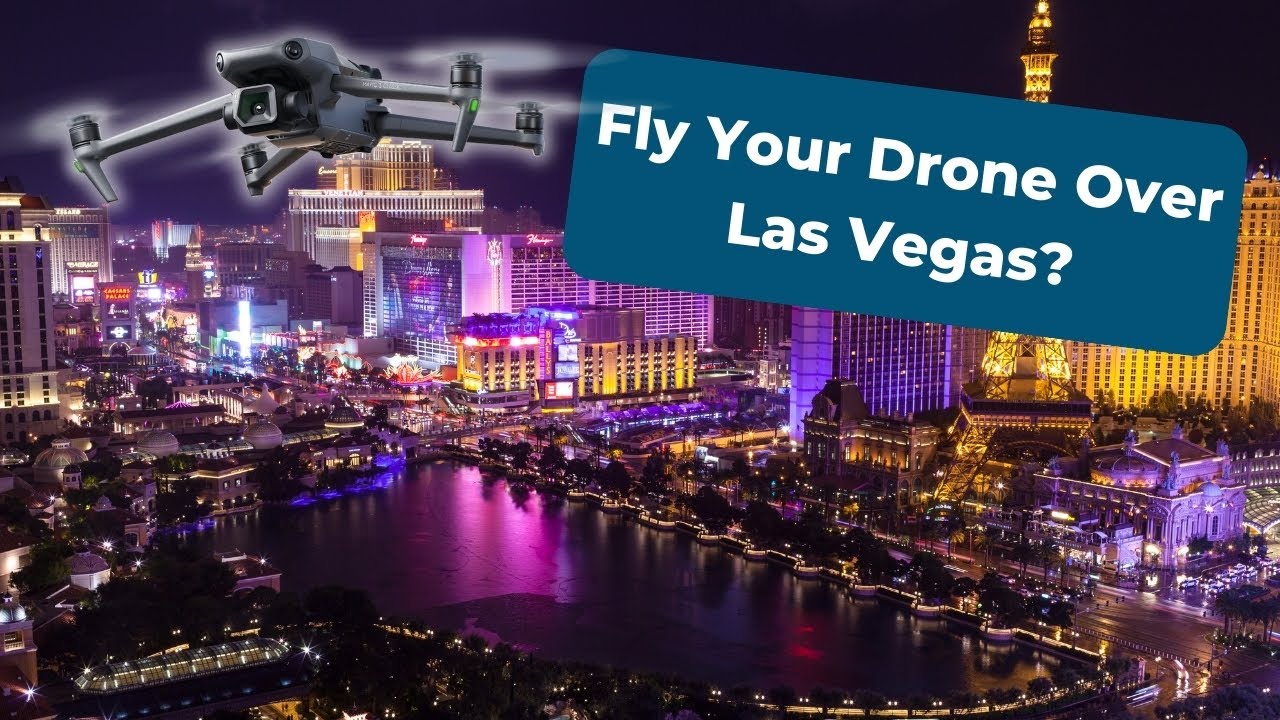
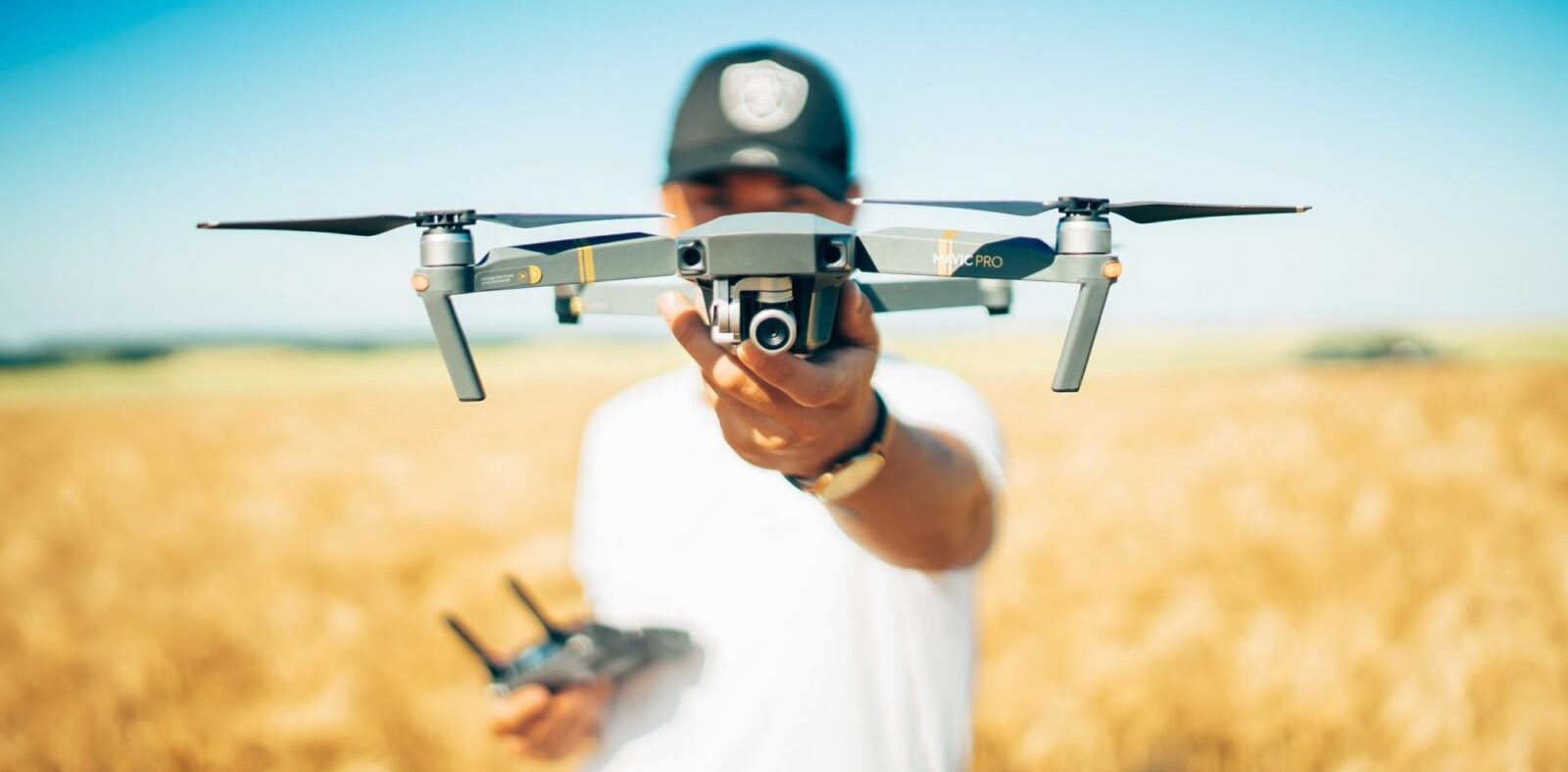

Comments are closed.